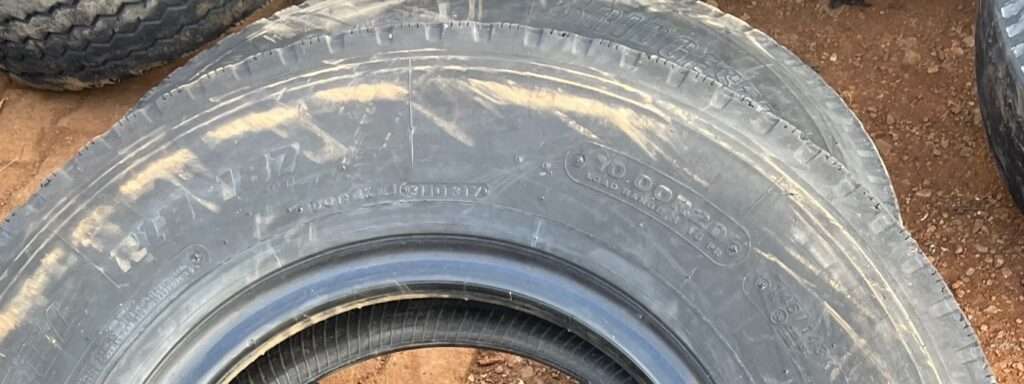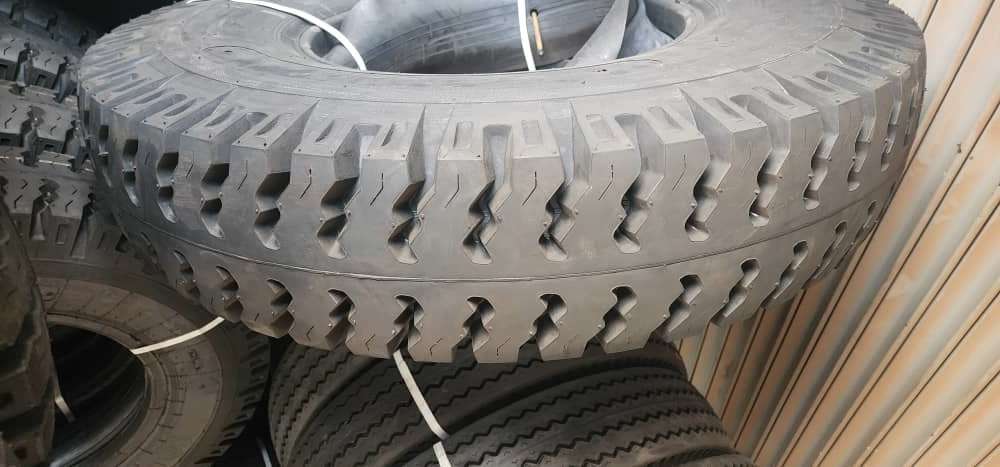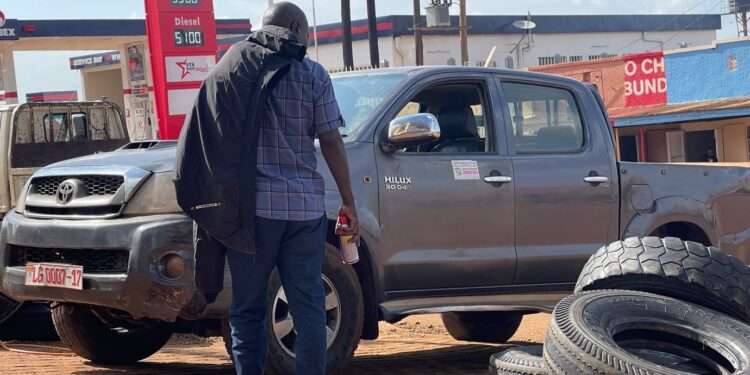As the financial year in Uganda draws to a close, a concerning trend usually emerges across government ministries, departments, and agencies. In a frantic rush to utilize unspent funds before they are automatically returned to the central government, officials who have fallen short in effectively managing their own timelines, workplans, and budgets will table all sorts of requests for even fictitious activities. Sadly, this haste is often not driven by a genuine desire to serve the public, but rather to line the pockets of those in positions of power who have failed to fulfill their duties in the first place.
Our investigative journalism team has uncovered a deeply troubling tyre syndicate involving the District and Municipality Engineering Departments in Kapchorwa. The evening of June 14th, 2024, bore witness to the arrival of a government vehicle, registration number LG 0007-17, preloaded with 12 used truck tyres, some of which were manufactured over a decade ago. (Vehicle tyres have a six-year expiration date which begins from the day the tyre was manufactured. Old used car tyres are prone to bursts and cause road traffic accidents as their quality has already depreciated.) The delivery was made to a local tyre service workshop, and the swift and seemingly well-coordinated offloading process raised immediate suspicions.

Moments later, the Municipality Engineer emerged from the vehicle, engaging in a brief conversation with the lead serviceman before promptly departing. This interaction only served to heighten our team’s curiosity, leading them to maintain a close watch on the unfolding events.
At 6 pm, two Mitsubishi Tipper Trucks, bearing registration numbers UG 2379W and UG 2382W, arrived on the scene. Upon thorough inspection, our snoops were alarmed to discover that the trucks’ tyres were completely worn out, posing a grave risk to the drivers and other road users. The casual manner in which the drivers approached the selection and replacement of these dangerously dilapidated tyres only compounded the concern.

The drivers’ meticulous yet peculiar examination of the used tyres, each employing their own methods to determine the “fairest” choice, left our team perplexed. The lighthearted banter and confident assertions about the longevity of their selections only heightened the sense of unease. Once the selection process was complete, the drivers unexpectedly departed the scene, leaving our snoops to continue their vigilant observation.
It was not until an hour later, when the drivers returned, that the final stage of the operation commenced. Under the cover of darkness, aided by the faint glow of Kabiriti torches and the newly installed street solar lighting, the servicemen swiftly removed the old tyres and fitted the replacements. The entire process unfolded under the watchful supervision of the drivers until 10:57 pm, when the Municipality Engineer arrived on the scene.

The lengthy discussion that ensued between the Engineer and the servicemen appeared to be a negotiation, culminating in the Engineer making a payment, the exact amount of which our team has been unable to ascertain. This transaction, shrouded in secrecy, only reinforced the suspicion that a deeply entrenched syndicate was at play.
Further investigation has revealed that this tyre replacement racket has been ongoing for some time, with nearly all government vehicles in the district running on old and dangerously worn-out tyres. This poses a serious threat not only to the civil servants who operate these vehicles but also to the general public who share the roads.

The financial implications of this syndicate are staggering. A brand new tyre like the Ugandan manufactured Kiboko brand costs at least 1,100,000 UGX, while the used ones purchased in this case range from 150,000 UGX to 200,000 UGX. For this particular deal alone, the actors involved have siphoned off not less than 8,400,000 UGX of taxpayers’ money, all while jeopardizing the safety of the public.

The UNBS guidelines prohibit trade in old or retreaded car tyres; providing for imprisonment of two years and a fine of 10 million shillings or both for those involved in the trade. We spoke to a used tyre dealer in Mbale, who preferred not to be named and he stated that some old used car tyres are re-treaded to attract buyers. “Although this reduces the size or thickness of the tyre and makes its grooves uneven and unable to withstand pressure, weight and heat from traction, we have no option but to survive,” he added.
This investigation has uncovered a systemic issue that possibly extends far beyond the single incident. It is a wake-up call for the authorities to address the rampant misuse of public funds and the blatant disregard for the safety and well-being of the Ugandan people. The time has come to ensure that public resources are used for their intended purpose – to improve the lives of the citizens of Uganda.

















Ugandans must be looking on the deliverables, if they are met by the parties. No matter of the methodology that has been used, but it the the Client impressed by the product.
I meant, the infrastructure of the land, no matter how much they scandal into there pockets, have they utilizised resources to the places they are supposed to be.
Managing public funds is not a one man’s show, but it is a two or more.
Ugandans are no longer interested in what happens with their taxes, thanks to the author and the investigation team who have brought such rot to light. The leadership should follow it up.